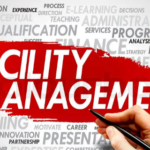
How Smart Technologies Revolutionize Facility Management
October 6, 2024
How to Handle Facility Management During a Renovation
October 14, 2024In today’s fast-paced business landscape, the significance of effective facility management cannot be overstated. With the rapid evolution of workplace environments, technologies, and corporate goals, businesses must ensure that their facilities align with their strategic objectives. This article explores the various dimensions of facility management and its vital role in enhancing organizational efficiency, productivity, and employee satisfaction.
Understanding Facility Management
Facility management encompasses a wide range of activities designed to ensure that a company’s physical assets are maintained and optimized for performance. This field integrates people, place, process, and technology to provide a safe, efficient, and sustainable workplace. The scope of facility management can include building maintenance, space planning, energy management, and health and safety compliance.
The Role of a Facility Manager
A facility manager serves as the linchpin of a company’s operational success. They are responsible for overseeing the maintenance and operations of the physical environment where business activities take place. Their responsibilities include managing staff, budgets, and service contracts while ensuring that the facilities are conducive to productivity and safety.
The Impact of Facility Management on Business Operations
Cost Efficiency
One of the primary benefits of effective facility management is cost efficiency. Facility managers focus on maximizing resource utilization and minimizing waste. By implementing energy-efficient practices and predictive maintenance strategies, businesses can significantly reduce operational costs. For instance, regular maintenance of HVAC systems can prevent costly breakdowns and ensure optimal energy consumption, ultimately leading to lower utility bills.
Enhanced Productivity
A well-managed facility creates an environment where employees can thrive. Factors such as adequate lighting, temperature control, and noise reduction contribute to a more comfortable workspace. When employees are comfortable, they are more likely to be engaged and productive. Moreover, facility managers can optimize space usage to foster collaboration and innovation, essential components of a dynamic workforce.
Safety and Compliance
In an era where workplace safety is paramount, facility management plays a crucial role in ensuring compliance with regulations and standards. Facility managers are responsible for conducting regular safety audits, maintaining emergency equipment, and training staff on safety protocols. By creating a safe environment, businesses can reduce the risk of accidents and associated costs, as well as enhance employee morale.
The Strategic Importance of Facility Management
Aligning Facilities with Business Goals
In modern business, the alignment of facilities with organizational goals is essential for success. Facility management is not just about maintaining buildings; it’s about creating spaces that support a company’s mission and vision. For example, tech companies often design open office spaces to encourage collaboration and creativity. In contrast, financial institutions may prioritize secure and private environments for client interactions. Facility managers must understand the business’s strategic direction to create spaces that enhance overall performance.
Supporting Sustainability Initiatives
As businesses become more environmentally conscious, facility management is key to achieving sustainability goals. Facility managers can implement green building practices, such as utilizing renewable energy sources, reducing water consumption, and enhancing waste management practices. These initiatives not only benefit the environment but also contribute to a company’s brand image and appeal to socially conscious consumers.
Technology Integration
With the advent of smart building technologies, facility management is transforming rapidly. Facility managers are now leveraging Internet of Things (IoT) devices, building automation systems, and data analytics to improve facility operations. These technologies enable real-time monitoring of building systems, predictive maintenance, and enhanced energy efficiency. As businesses embrace digital transformation, facility management must evolve to incorporate these advancements effectively.
Challenges in Facility Management
Budget Constraints
Despite its importance, facility management often faces budget constraints. Many organizations view facilities as a cost center rather than a strategic asset. As a result, facility managers may struggle to secure adequate funding for maintenance and improvement projects. To overcome this challenge, facility managers must demonstrate the value of their initiatives in terms of cost savings and improved productivity.
Changing Workforce Dynamics
The modern workforce is increasingly diverse and dynamic, with remote work and flexible schedules becoming the norm. Facility managers must adapt to these changes by creating adaptable workspaces that accommodate different work styles and preferences. This may involve rethinking traditional office layouts and investing in technology that supports remote collaboration.
Keeping Up with Regulations
Regulatory compliance is an ongoing challenge for facility managers. Changes in health, safety, and environmental regulations can require significant adjustments in facility operations. Staying informed about regulatory updates and ensuring compliance can be a daunting task, necessitating a proactive approach to facility management.
The Future of Facility Management
Emphasizing Employee Well-being
As the focus on employee well-being continues to grow, facility management will play a crucial role in creating healthy work environments. This includes incorporating biophilic design elements, promoting natural light, and providing spaces for relaxation and social interaction. By prioritizing employee well-being, organizations can enhance job satisfaction and retention rates.
Data-Driven Decision Making
The integration of data analytics into facility management will revolutionize how decisions are made. Facility managers will increasingly rely on data to assess building performance, track energy usage, and identify maintenance needs. This data-driven approach will enable organizations to make informed decisions that align with their strategic objectives.
Adaptability and Resilience
In an unpredictable business landscape, adaptability and resilience will be essential qualities for facility management. Facility managers will need to develop flexible strategies that can quickly respond to changing business needs, whether due to economic shifts, technological advancements, or global events. This may involve reconfiguring spaces, adopting new technologies, or enhancing safety protocols.
Conclusion
Facility management is a critical component of modern business that goes beyond mere maintenance. It encompasses a strategic approach to creating and managing the physical environment in which organizations operate. By prioritizing cost efficiency, productivity, safety, and sustainability, facility managers can significantly impact overall business performance. As the landscape of work continues to evolve, the importance of facility management will only grow, making it an essential element for any organization aiming for long-term success. Embracing the challenges and opportunities in this field will enable businesses to thrive in an increasingly competitive world.



